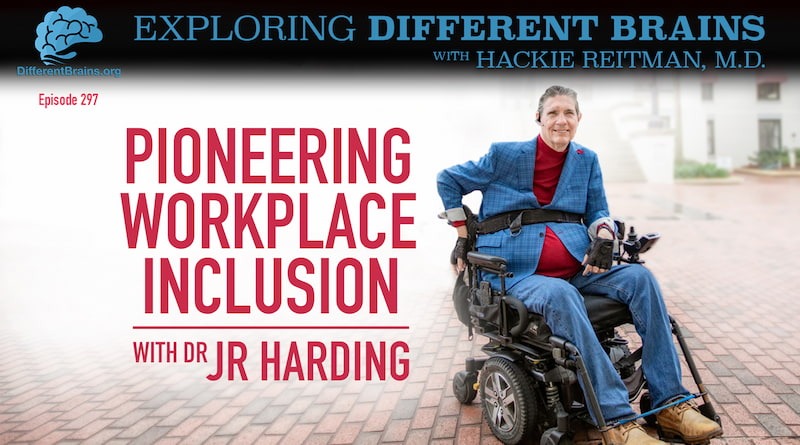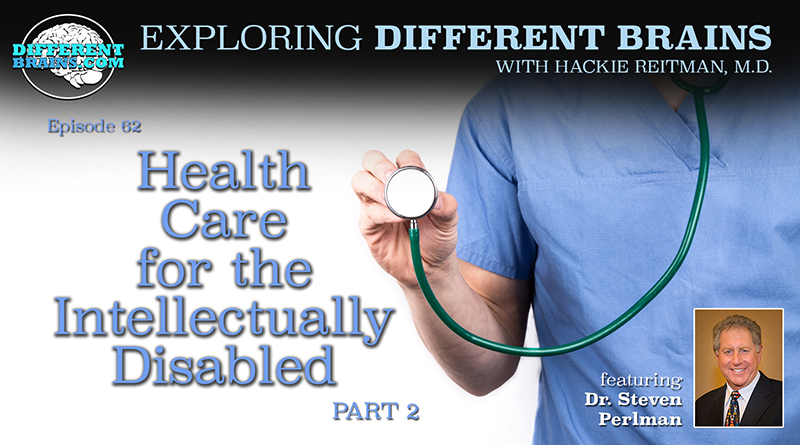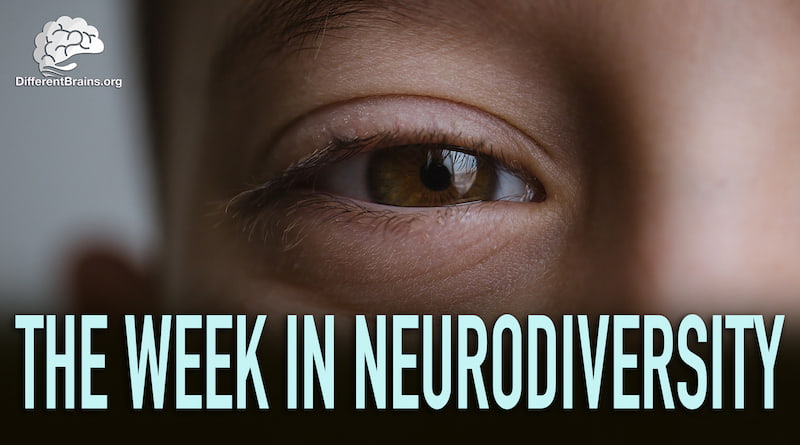Women & Hormones | ADHD Power Tools w/ Ali Idriss & Brooke Schnittman

(7 mins) In this episode of ADHD Power Tools, Ali and Brooke discuss how hormones in women affect ADHD symptoms!
Brooke Schnittman, MA, ACC, BCC is a certified coach who works with children, students, teens, adults, and parents with or without ADHD. She has been nominated for multiple awards including “Best In Show Community” and ”Advocating For Another.” She is the creator of What’s Next and ADHDEdCamp.
Ali Idriss is a Different Brains intern and ADHD self-advocate. He aspires to share his journey and help others with the tools that have allowed him to overcome many of the challenges along the way, as he co-hosts ADHD Power Tools and conducts research on college students with ADHD. Ali has completed his bachelor’s in Biological Sciences at Florida Atlantic University and is currently completing his second bachelor’s in Neuroscience and Behavior at Florida Atlantic University. He is also an Emergency Medical Technician and is aspiring to become a physician
For more on Brooke and her work, visit: https://www.coachingwithbrooke.com/
FULL TRANSCRIPTION:
AI: Hello, Brooke, today I want to ask you how do hormones in women affect ADHD symptoms?
BS: Yeah, so there are three sex hormones estrogen, progesterone, testosterone. And those hormones can fluctuate in a person’s menstrual cycle, and they can also impact women’s ADHD symptoms. So you ask how? Well, let’s start off with estrogen. Estrogen is low during our cycle or even menopause. And our dopamine production is also low. So when dopamine is low, we’ve spoken about dopamine in our past episodes, they can cause our ADHD symptoms to increase. Right. So in general, dopamine with ADHD is either like below baseline or above baseline. And when that estrogen is low, so is our dopamine. Additionally, with that the lower the dopamine levels during menstruation can impact our memory, our focusing abilities, our executive function, which we’re going to be talking about, actually, we talked about in the last episode, our pain threshold, and something that is near and dear to me four and a half months off of my pregnancy. Some individuals with ADHD report improved ability to focus while we are pregnant. So that is because of our higher estrogen levels. Interesting, right? So I had to get off of my medication that I was taking while I was pregnant. And I was concerned that because I was off Adderall, that my ability to focus was going to decrease.
Now, it did decrease slightly, but I did find significantly higher focusing abilities when I was pregnant than off pregnancy, so postpartum, which is, I think, very interesting. Additionally, 57% of pregnant individuals with ADHD also report postpartum depression after their first child. So it’s, the odds are that you will have postpartum depression. Going through menopause, you can experience frequent hot flashes, because of the estrogen levels. I also got those hot flashes and night sweats while pregnant and also breastfeeding. Testosterone for certain individuals who produce higher testosterone – with that there’s no conclusive evidence that it plays a role in our ADHD symptoms. So that’s interesting and fortunate for individuals who produce that higher testosterone.
And the third thing is cortisol. And cortisol is our fight or flight stress hormone. And cortisol is something that, that fight and flight stress hormone is something that is near and dear to ADHDers so typical for Neuro typicals is that cortisol starts off high, about an hour after waking up and then lower in the evenings. But in 2021, a study found that young individuals with ADHD, their cortisol progression tends to start low in the morning and increase slowly before the evening and then taper off as the evening gets closer. So these are all just different ways that cortisol and estrogen can impact you. Fortunately, does not have any conclusive evidence that it plays a role in our ADHD symptoms, but your estrogen hundred percent can impact your ADHD symptoms, as I mentioned, memory focus executive functions, pain thresholds, you know, postpartum depression, which when you have depression, it could impact your executive functions and they can shut down so that is my two cents about women and hormones.
AI: So, Brooke, you make, you talk about a lot of important and interesting points. I want to ask you about pregnancy and especially when it nears childbirth based off your experiences because we’ve gone over these episodes, because you were going through on these experiences and these two topics so how did so we talked about ADHD symptoms and but how did it like affect you specifically with relationships and mood in the workplace like how did you see it you know, we can Talk about hormones. But how did you actually feel it? Like what what I want to ask you like, how did you handle it? How did you deal with, you know, pregnancy in your childbirth?
BS: Yeah, so definitely had night sweats woke up in the morning feeling like I took a shower. I’m not one of those good showers. I was not taking my Adderall as I mentioned. So I was afraid that I wasn’t going to be able to focus as much, but I was able to focus because of the estrogen levels. I was eating so much sugar. Now I know we have all of our theories about whether or not ADHD or should not eat sugar or not, but I was craving it. And I felt when I ate a lot of sugar and sweets that, you know, my focus spiked and then dropped immediately, as we talked about with Andrew Huberman, you know, when you increase the sugar, you’ll get that focus and then it drops. So when I was craving more and more sugar as I was eating it, I also was drinking a lot of soda, which I don’t typically do. I was craving that I could not drink coffee for my caffeine. So that was impacting my ability to focus as well.
AI: Why couldn’t drink coffee? I’m curious.
BS: The acid, it was too acidic for me. And I was actually repulsed by the taste and smell of coffee when I was pregnant. And we’re now there’s no problem.
AI: There you go. There you go. And were you beating yourself about eating like sugar? Like, was it really…
BS: No, I wasn’t beating myself up. I definitely kind of leaned into whatever I was craving, which it was only sugar that I was craving. So no, I wasn’t beating myself up. I just really liked sweets. And it kind of has continued since then.
AI: As we all do, as we all do love sweets, but yeah thank you Brooke.
BS: No problem.

Ali Idriss is a Different Brains intern and ADHD self-advocate. He aspires to share his journey and help others with the tools that have allowed him to overcome many of the challenges along the way, as he co-hosts ADHD Power Tools and conducts research on college students with ADHD. Ali has completed his bachelor’s in Biological Sciences at Florida Atlantic University and is currently completing his second bachelor’s in Neuroscience and Behavior at Florida Atlantic University. He is also an Emergency Medical Technician and is aspiring to become a physician.




